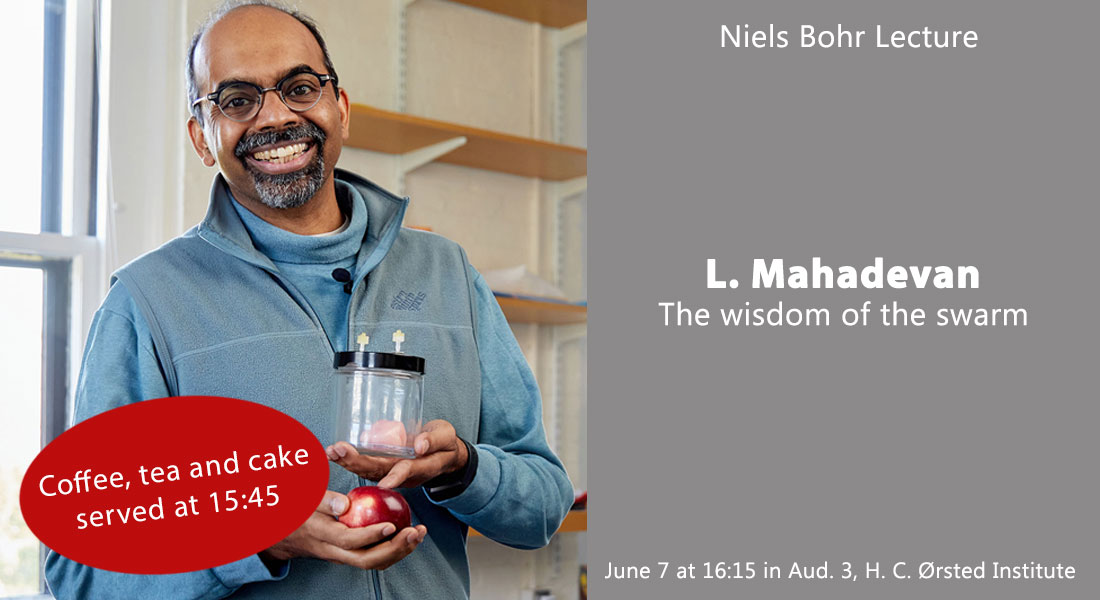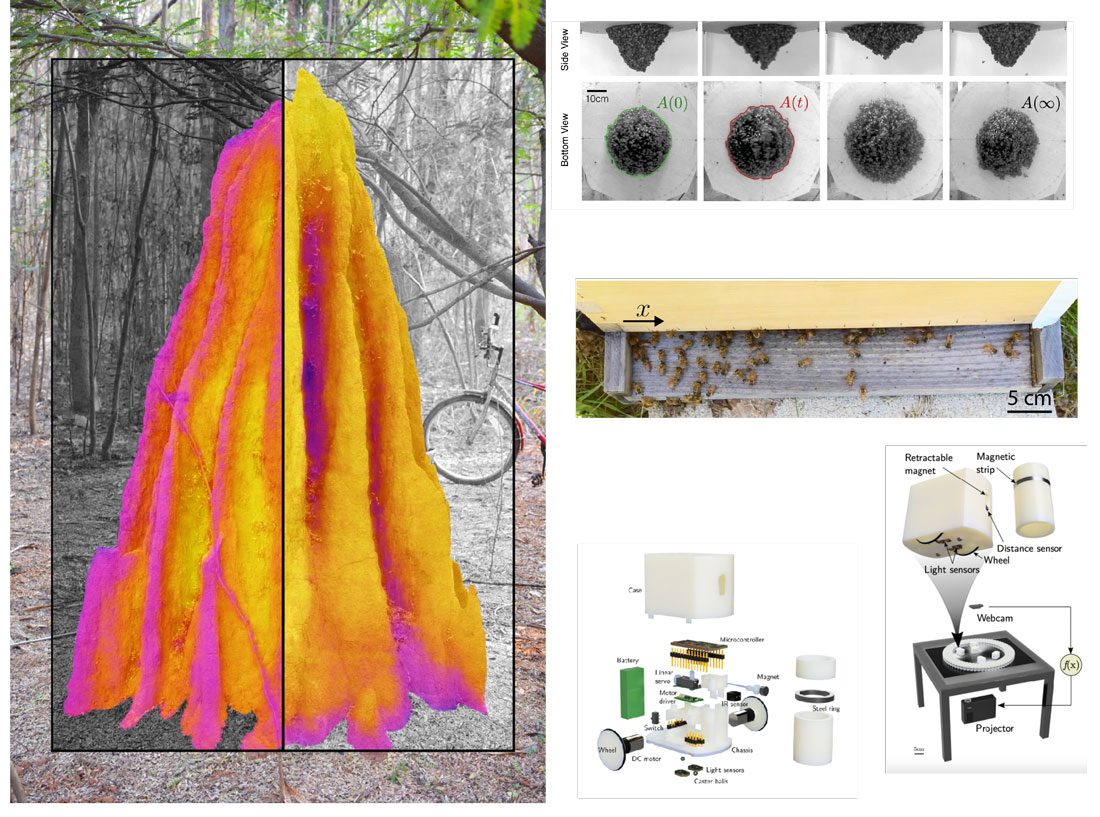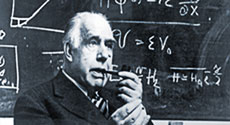Niels Bohr Lecture by L. Mahadevan, Harvard University

Title: The wisdom of the swarm
Abstract: Super-organisms such as social insects solve complex physiological problems collectively, sans plan or planner, on scales much larger than the individual.
Motivated by observations in the field and in the lab, I will describe our attempts to understand how insects actively engineer their micro-environment in such contexts as termite mound morphogenesis, active ventilation and mechanical stabilization in bee clusters, and collective construction in ants.

By linking physics and behavior on multiple scales using local sensing and action mediated by global physics, these examples point to a kind of embodied physical intelligence.
To synthesize these complex collective behaviors, I will close by describing our experiments using simple robots that sharpen some questions raised a long time ago by Tinbergen, among others.
About the speaker
L Mahadevan was born in India, and following his undergraduate studies at IIT-Madras, obtained his PhD at Stanford University in 1995 under the tutelage of the mathematician Joseph Keller.
- After postdoctoral stints at Urbana and Chicago, he started his independent career at MIT and was tenured there after slightly more than three years on the faculty.
- He moved across the pond in 2001 and was the inaugural Schlumberger Chair in Complex Physical Systems at Cambridge University and a Professorial Fellow at Trinity.
- He came to Harvard University in 2003, where he is currently the England de Valpine Professor of Applied Mathematics, Physics and Organismic and Evolutionary Biology.
-
His work has been recognized by many awards.
-
He is a MacArthur Fellow, a Simons Investigator, and a Fellow of the Royal Society of London.
His interests center around using experiments, theory and computation to study motion and matter at the human scale, and include understanding the patterns of shape and flow of inanimate matter in systems ranging from the supramolecular to the planetary, and the dynamics of sentient matter that can self-organize, perceive and act in systems ranging from the sub-cellular to the super-organismal.
Since 2017, together with his spouse, he has been Faculty Dean of Mather House, one of 12 undergraduate residences at Harvard College, where they live and learn with a community of ~400 students.
Coffee, tea and cake served at 15:45
|

 Niels Bohr Lectures
Niels Bohr Lectures